LVL TALKS TO TONY JUDGE: THE COMPOSER BRINGING SILENT FILM BACK FROM THE DEAD
The wildly popular Sounds and Silence Cinema is approaching its fourth, and final event of 2018. Born from a combined love of cinema and appreciation of music, the event invites audiences into exclusive venues in Liverpool City Centre to experience a live ‘retelling’ of classic silent cinema.
Previous events have screened Alfred Hitchcock’s The Lodger (1925), Nosferatu (1922), Metropolis (1927). Next up is horror classic The Cabinet Of Dr. Caligari (1920) on December 12th at Jacaranda Phase One Records, Seel Street. We caught up with the maestro behind the events, pianist Tony Judge, at Liverpool’s premier jazz venue Keith’s Wine Bar, to get the lowdown on what to expect.
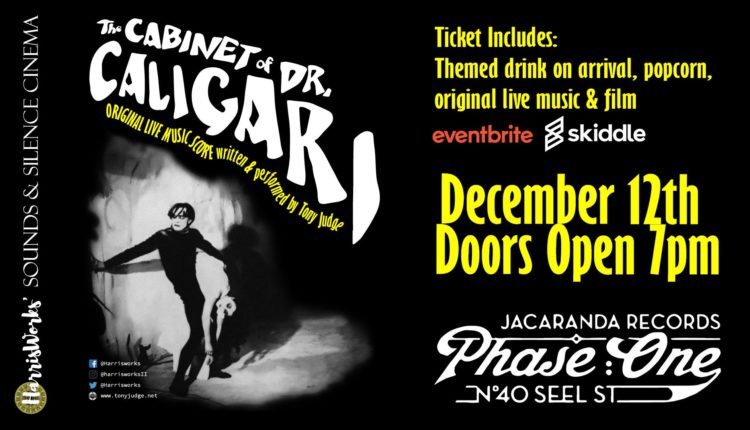
LVL: What got you, a musician, into cinema?
Tony: People love the Cinema. It’s the major medium for artistic people to express themselves in the 20th century. My favourite era’s the 70’s. For me, there will never be another decade in cinema that even comes close to it. The birth of gritty realism, the rise of independent film.
I may be doing a disservice, but so many of the mainstream movies today feel like there’s something lacking. Depth of storyline, characterisation, nuance, cinematography. If you need a kind of medicine to what you often get now with the copy and paste Harry Potters and Marvel Action Hero movies, it’s worth looking back to the past, to the very beginning of it all. Here, you start to discover some of the artistic impulses that make the whole cinema experience.
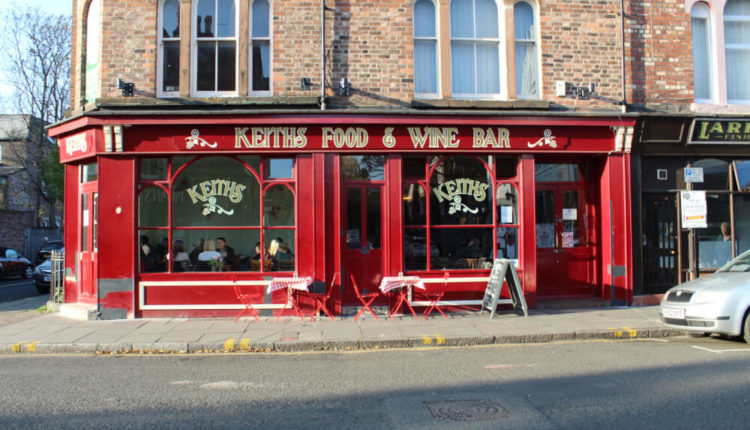
LVL: Is it that passion that inspired you to start Sounds and Silence Cinema with HarrisWorks?
Tony: Yes, but I’ve also been lucky in that I have had the opportunity to look deeper into these classic films. If it’s part of your work, you start to look at it with a new perspective. The music in film has always been a part of the spark of creativity for me. Songwriting is a completely different skill. For me, it has always been about making music instrumentally. But, since instrumental music is not so easily accessible, you sometimes need to project it in a different light. So, I made the opportunity to perform with two of the great things I love.
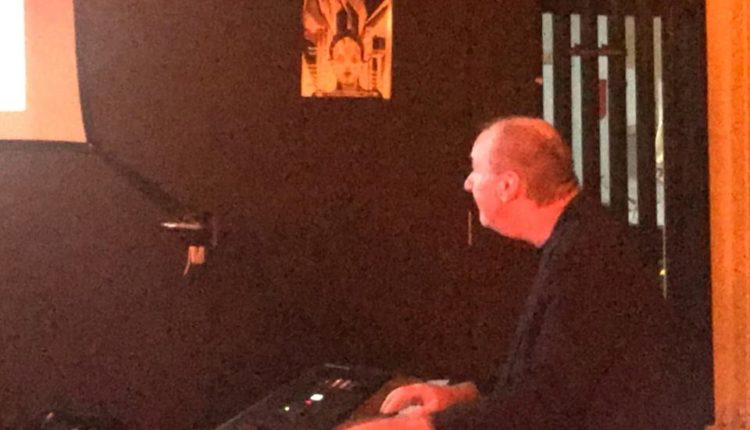
LVL: How do you approach scoring a film?
Tony: Musical language has existed for years. I mean, look at Jaws (1975). That main theme is striking, sure, but also serves as an ambient tension builder. I’m looking back at these films with a modern perspective, and try to reflect that by updating the music.
What I’m actually doing is something called chromatic modulation. This involves never letting a listener settle. You listen to certain music or songs and its relaxing, unthreatening. But if I’m constantly changing the key, it makes people restless and you can produce the most fantastic, unsettling music. I’m never gonna let you sit and think “I know where we are now”, though I do try and keep a melodic theme running through. So technically speaking, that is how it’s done.
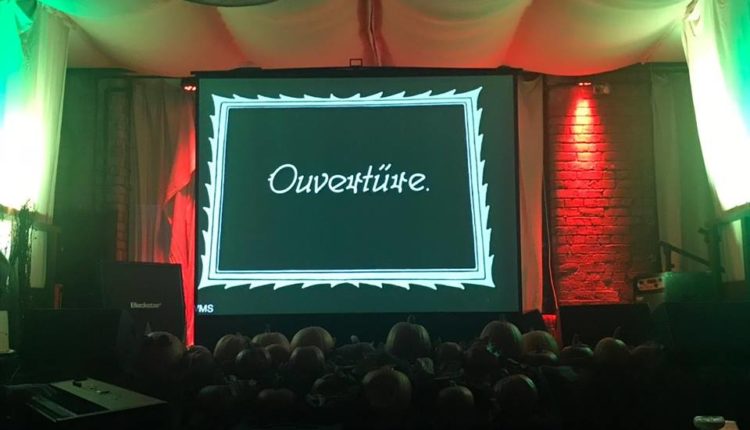
LVL: Do you write through the lens of film characters?
Tony: It isn’t so much the characters, it’s the relationship between the characters that I’m playing. A good person in themselves is just a good person, but a bad person meeting a good person – thats a complex and interesting dynamic. Through music, and the wordless emotion that it can express, the subtleties and nuances of good vs. evil can be shared in about 2 bars of a melody or phrase. It’s astonishing!
Rather than just building mood, I’m encouraging empathy. Encouraging people to bring themselves into this environment. It’s like a kind of hypnotic trance that both myself and the audience get into. We all kind of get absorbed at the same time. That’s a wonderful experience for me and hopefully viewers get into that, and we go together into a rhythm, a sort of spiral.
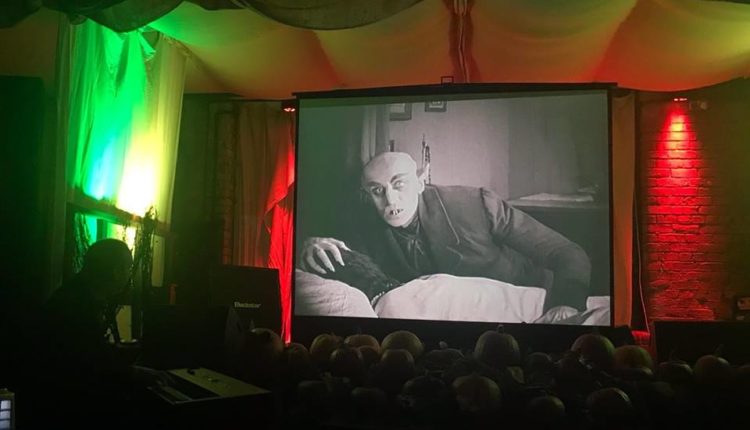
LVL: You mentioned the symbiotic relationship between film and music, what are your favourite examples of this?
Tony: Oh okay! Big one. Do you know the steel guitar parts in Paris, Texas (1984)? You get this big open space with this little bit of light shone through it; the music. If we’re going to talk films where I’d say listen to the music, I’d go with Paris, Texas. Then to tug the heartstrings, the score to Cinema Paradiso (1988) score by Ennio Morricone. It almost brings tears to my eyes just thinking about it: the evocation of childhood that big romantic theme finally coming together in the final moments.
There’s also great examples of the use of music that hasn’t been specifically written for the film: like Verdi in Jean de Florette (1986). Stanley Kubrick’s done loads of it. In the film Eyes Wide Shut (1999), Kubrick mixes some music that hasn’t been written for the film and some that is. In the, er, “ritual” scene, there is a very effective piece of original music where the composer, Jocelyn Pook, did a recording of Romanian monks chanting and played it backwards.
You’d be surprised as well at the composers asked to write music for silent movies: Prokofiev, Shostakovich, Edmund Meisel did Battleship Potemkin (1925). Ralph Vaughan Williams wrote the score for Scott of the Antarctic (1948). It’s no trivial thing, film music. Some musicians think if you’re writing for a film you’re sort of selling out, but i don’t think so.
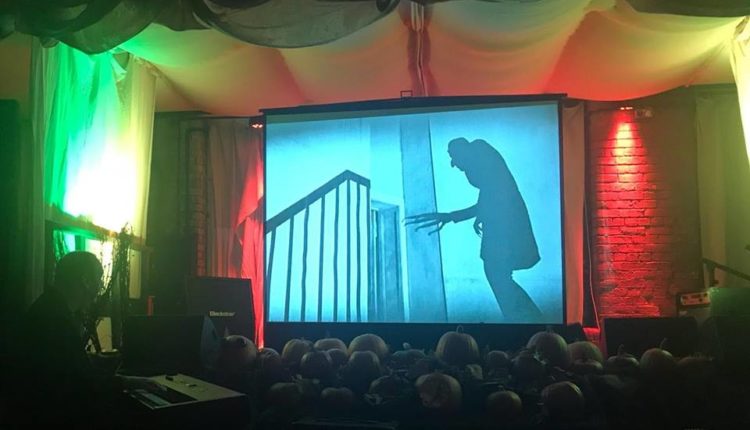
LVL: Why should people revisit these old films with you?
Tony: You’re going to get a unique interpretation of these movies. I think you have to have a certain set of skills as, Liam Neeson would say, to do that. I work to understand the film completely but that’s nowhere near the hardest part. You see, all great music and art reinterprets the world. For 90 mins i reinterpret a little world that we’re involved in. I do it with a real affection for the film, and also for the audience watching. I know my film and I know my music. I’ve been a classical musician and improvisational jazz pianist for 40 years. I am using that to interpret this tiny world that we can all enjoy together on red leather settees with a drink and some popcorn!
LVL: How can people discover your music?
Tony: Well they can come to one of our Sounds and Silence Events and experience it live as intended, or head over to TonyJudge.net and check some preludes out there. I have some plans for physical releases around this concept, so watch this space!
You can buy tickets for Wednesday 12th December’s showing of The Cabinet of Dr. Caligari at Jacaranda Phase One Records, from FACEBOOK, EVENTBRITE and SKIDDLE.

